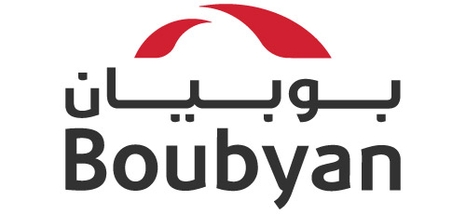
The merger had been under discussion for several months, with both banks anticipating that their union would result in increased financial strength and market share. By pooling their resources, the two entities hoped to strengthen their competitive positioning both locally and regionally. However, the deal faced challenges, including concerns over regulatory approvals, alignment of business strategies, and differing visions between the banks’ management.
Gulf Bank, one of Kuwait’s oldest and largest banks, and Boubyan Bank, a key player in Islamic banking, had initially seen the merger as a way to expand their portfolios and provide customers with a broader range of financial products. Gulf Bank had been focusing on enhancing its retail banking services, while Boubyan Bank had carved a niche in Islamic finance, providing Sharia-compliant banking solutions. Despite their complementary strengths, discussions about integrating their operations were met with caution by industry experts.
Market analysts had expressed mixed views on the merger. Some believed that combining the strengths of both banks would have resulted in improved profitability, while others were concerned that the cultural differences between a conventional banking institution like Gulf Bank and an Islamic bank like Boubyan might prove challenging. The banking industry in Kuwait, which is already competitive, is witnessing ongoing shifts as financial institutions increasingly explore new avenues for growth and profitability.
Boubyan Bank's focus on Islamic finance was seen as a potential stumbling block in the merger. Islamic banking principles, which prohibit certain financial activities like earning interest, often clash with conventional banking practices. This divergence led some analysts to question whether the merger would have resulted in operational conflicts or if it would have required significant adjustments in both institutions’ business models.
The banks had expressed optimism about the merger initially, with Gulf Bank’s chairman noting that the deal could enhance both banks' technological capabilities, particularly in digital banking services. However, the decision to call off the merger suggests that strategic alignment, particularly in terms of long-term growth trajectories, remained an unresolved issue. Both banks have stated that they remain committed to continuing with their individual growth strategies and will focus on improving their financial performance through organic growth.
In the wake of the announcement, Gulf Bank's stock saw some volatility, reflecting market reactions to the halting of the merger. Investors had initially reacted positively to the prospect of consolidation, but uncertainty around the banks' future strategies has led to mixed responses. Boubyan Bank’s shares also experienced a slight dip, though they quickly stabilized. The market’s reaction underscores the significance of this merger in shaping investor sentiment and expectations for both banks.
Despite the setback, both Gulf Bank and Boubyan Bank continue to focus on enhancing their digital transformation efforts. Gulf Bank, in particular, has been expanding its digital banking services to cater to an increasingly tech-savvy customer base. Boubyan Bank has also been focusing on technological innovation, especially in offering digital services that comply with Sharia principles. The banks' efforts to modernize their operations suggest that they are positioning themselves for future growth, albeit through different strategic paths.
The decision to suspend the merger also has broader implications for the Kuwaiti banking sector. While consolidation has been a key theme in the region's banking industry, the breakup of this proposed merger could lead to further reassessments of the viability of similar deals in the future. The banking landscape in Kuwait remains highly competitive, with banks looking for ways to differentiate themselves in a rapidly changing financial environment.
This development is part of a wider trend where banks in the Gulf region are increasingly looking at mergers and acquisitions as a way to navigate challenges posed by economic fluctuations and regulatory changes. While some of these deals have gone through successfully, others have faced significant hurdles, whether due to differences in corporate cultures, regulatory issues, or market conditions. The failure of the Gulf Bank-Boubyan Bank merger highlights the complexities of such large-scale corporate decisions and the need for careful strategic planning.
Looking ahead, both Gulf Bank and Boubyan Bank are expected to continue pursuing their individual growth strategies. Gulf Bank’s recent investments in retail banking and Boubyan Bank’s commitment to expanding its Islamic finance offerings signal that both institutions remain determined to strengthen their positions in a dynamic market. It remains to be seen whether other banks will look to merge in the future or if the focus will shift to organic growth and strategic partnerships that do not involve full-scale mergers.
Topics
Spotlight
